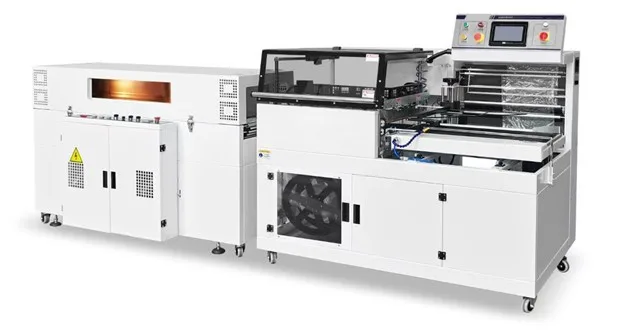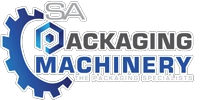Shrink Wrap for Dairy Products: Why It’s Essential for Freshness and Safety
When it comes to reliable, hygienic, and cost-effective packaging, shrink wrap for dairy products stands out as one of the most trusted solutions in the industry. Dairy items like milk, cheese, yoghurt, butter, cream, and custard are extremely vulnerable to contamination, temperature changes, tampering, and moisture exposure. Because of this, many manufacturers rely on shrink wrap to preserve product integrity from the production line all the way to retail shelves.
In this article, we explore why shrink wrap is so effective for dairy packaging, what types of shrink film are most commonly used, and how investing in the right shrink-wrapping machine can transform productivity for dairy suppliers.

What Is Shrink Wrap for Dairy Products?
Shrink wrap for dairy products refers to heat-sensitive plastic film—usually polyolefin (POF) or polyethylene (PE)—that tightly seals dairy goods once heat is applied. This type of packaging creates a clear, protective layer around the product or the product’s container.
Shrink wrap is used in the dairy industry for:
-
Multi-packs (e.g., 6-pack yoghurt tubs)
-
Single product wrapping
-
Transport packaging for crates and containers
-
Retail display packaging
-
Hygiene protection during transport and storage
Because dairy is highly perishable, the tight sealing properties of shrink wrap protect the product from external elements that could compromise freshness and safety.
Why Shrink Wrap Is Ideal for Dairy Products
Below are key reasons why shrink wrap is one of the most effective packaging methods for dairy manufacturers:
1. Excellent Contamination Protection
Dairy products are sensitive to bacteria, dust, moisture, and cross-contamination. Shrink wrap provides a fully sealed barrier that prevents exposure to harmful elements, keeping dairy products hygienically safe throughout the supply chain.
2. Maintains Freshness and Extends Shelf Life
Shrink film protects dairy goods from oxygen, humidity, and temperature fluctuations. This helps maintain product texture, appearance, and freshness for longer periods—especially critical for milk, cheese, and chilled yoghurts.
3. Enhances Branding and Shelf Appeal
Shrink wrap offers crystal-clear visibility, allowing consumers to easily see product quality. It also supports printed branding, labels, barcodes, and attractive product presentation—ideal for retail displays.
4. Cost-Effective and Efficient Packaging
Compared to rigid packaging alternatives, shrink wrap is lightweight, affordable, and faster to apply with the right machinery. It reduces material waste and lowers overall packaging costs.
5. Improves Transport Durability
Shrink-wrapped multi-packs and crates are more stable during transport. The tight seal reduces movement, prevents damage, and allows for easier stacking.
Types of Shrink Film Used for Dairy Products
Dairy manufacturers typically use three types of shrink film. Each has its own benefits depending on the type of product:
1. Polyolefin (POF) Shrink Film
-
Food-safe and approved for direct contact
-
High clarity
-
Strong and flexible
-
Ideal for wrapping yoghurt tubs, cheese blocks, puddings, and multi-packs
2. Polyethylene (PE) Shrink Film
-
Thicker and more durable
-
Perfect for bundling larger or heavier products
-
Used for shrink-wrapping crates, milk bottles, or bulk dairy items
3. PVC Shrink Film (Not for Direct Food Contact)
-
Lower cost but less commonly used for dairy
-
Suitable for secondary packaging only (not primary wrapping)
Shrink Wrapping Machines for Dairy Packaging
To get the best performance, dairy manufacturers often use one of the following machines:
1. L-Sealer with Heat Tunnel
Ideal for packaging individual dairy products or multi-packs with POF shrink film.
2. Sleeve Wrapper (for Heavy Bundles)
Perfect for milk crates, multi-bottle packs, and bulk transport packaging using PE film.
3. Automatic Shrink Wrappers
These machines integrate seamlessly into high-volume production lines, ideal for large dairy operations.
Choosing the right machine depends on your pack size, production speed, and shrink film type.
Benefits of Using Shrink Wrap for Dairy Manufacturers
Improved hygiene compliance
Meets strict industry standards for food safety.
Reduced packaging costs
Less material usage and efficient processing.
Better product protection
Minimises breakage, spoilage, and tampering.
Sustainable options available
Eco-friendly shrink films made from recyclable materials.
Contact Us for Shrink Wrap Solutions
Looking for the perfect shrink wrap for dairy products or the right shrink-wrapping machine for your production line?
We supply a wide range of shrink-wrapping machines, shrink tunnels, and high-quality shrink films suitable for all dairy applications.
Contact Us Today:
Let our packaging specialists guide you with the best solution for your dairy products.
Frequently Asked Questions: Shrink Wrap for Dairy Products
What is shrink wrap for dairy products?
Shrink wrap for dairy products is a heat-sensitive plastic film used to tightly seal milk, cheese, yoghurt, and other dairy items. Once heat is applied, the film shrinks around the product, creating a protective, tamper-evident barrier.
Is shrink wrap safe for food packaging?
Yes. Polyolefin (POF) shrink film is food-safe and approved for direct contact with dairy products. It is non-toxic, durable, and commonly used across the food manufacturing industry.
Which shrink film is best for dairy packaging?
Lorem ipsum dolour sit amet, consectetur adipisicing elit. Optio, neque qui velit. Magni dolourum quidem ipsam eligendi, totam, facilis laudantium cum accusamus ullam voluptatibus commodi numquam, error, est. Ea, consequatur.
Can shrink wrap extend the shelf life of dairy products?
Yes. Shrink wrap protects against moisture, oxygen, and contaminants, helping maintain freshness, appearance, and quality. This results in improved shelf life compared to unwrapped or loosely packaged items.
What dairy products can be shrink wrapped?
Shrink wrap can be used for a wide range of dairy items, including yoghurt tubs, cheese blocks, cream bottles, butter packets, custard cups, and multipacks of dairy beverages.
Is shrink wrap cost-effective for dairy manufacturers?
Definitely. Shrink wrap is lightweight, requires minimal material, and works efficiently with automated machines, reducing labour and packaging costs.
Do I need a specific machine to shrink wrap dairy products?
Yes. Machines like L-sealers, sleeve wrappers, and shrink tunnels are commonly used. The best machine depends on your pack size, production volume, and film type.
Can shrink wrap improve product safety?
Yes. It provides a sealed, tamper-evident layer that prevents contamination and protects the product during transport, storage, and retail handling.
Does shrink wrap work for refrigerated dairy products?
Absolutely. Shrink films such as POF and PE are durable at low temperatures and maintain flexibility, making them suitable for chilled storage environments.
Is shrink wrap environmentally friendly?
Eco-friendly and recyclable shrink film options are available. Many suppliers now offer thinner, high-strength films that reduce material waste.
